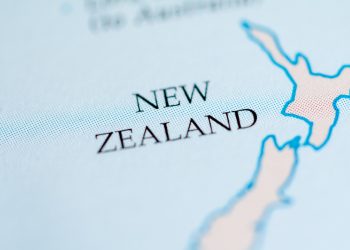With the advent of the rainy and typhoon season, the Philippine Coast Guard (PCG) has cited anew the need to review domestic policies on ship crew competence.
In a recent report submitted by Commander Allan dela Vega of the PCG?s Maritime Safety Office, the Coast Guard Command Center recorded cases of grounding incidents involving seven passenger and cargo vessels during the months of May and June alone.
The vessels involved were M/V Pacific Cruiser, M/Y Nomad Korea, M/V Ivatan, M/V Tong Shun, M/V Sta. Filomena, M/V Super Shuttle Ferry, and M/V Filipina Ozamiz.
On the other hand, M/V Sycamore Global rammed the pier of the Toledo Power Corp. in Cebu.
Initial reports pointed to the human factor as possible cause of the incidents.
Due to the increasing cases of vessel groundings, Admiral Wilfredo D Tamayo, PCG commandant, is recommending for the joint review of domestic crew competence standards and training policies, as well as sanctions to negligent ship officers and crew, by the Professional Regulation Commission (PRC), Technical Education and Skills Development Authority (TESDA), Maritime Industry Authority (MARINA) and the PCG.
The PRC issues the Competency Certificate for all ship officers; TESDA, the Rating Certificate for non-officers; and MARINA, the Qualification Document Certificate for both officers and crew.
Tamayo noted that the human element plays a vital role in ensuring the safety of vessels, its passengers and the protection of the marine environment.
The said grounding incidents have alarmed the PCG and triggered calls for cognizant government agencies to immediately review existing policies and sanctions to erring ship officers and crew.
It was noted that most of the grounding incidents happened in clear visibility, fair weather condition and in an area where appropriate aids to navigation were in place. Further, most of the vessels involved have been on their regular routes where the ships? masters supposedly have familiarity of the area.
Tamayo said that accidents arising from human error may be attributed to either: error of judgment, complacency, and incompetence, or when the personnel performing the job has no knowledge nor experience in the task that is being done.
Further, lack of sleep or stress also affects a person?s decision-making that results to near misses or accidents, he added.
As worldwide statistics point to 80 percent of accidents are caused by human factor, several international conventions have been adopted to address these problems which include the International Safety Management (ISM) Code, the ILO?s Maritime Labor Convention (MLC) 2006 and the International Convention on Standards of Training, Certification and Watchkeeping for Seafarers (STCW) 78/95.
Incidentally, the STCW is being amended in a Diplomatic Conference hosted by the Philippines from June 21 to 25, 2010 at the Philippine International Convention Center (PICC) and participated in by more or less 650 delegates from around the world.
According to Tamayo, the PCG will strongly recommend to PRC, TESDA and MARINA for the regular review of domestic seafarer competency standard and will push for rigid sanctions for erring crew, that may range from reprimand to suspension and revocation of licenses, when proven negligent or irresponsible.
Meanwhile, as per statistics of the CG Command Center, 41 vessels encountered engine breakdowns or derangements at sea since March of this year.
To minimize, if not prevent such incidents, the Coast Guard also enjoins shipowners to observe strict implementation of maintenance schedules to guarantee the reliability of their vessels? machineries or engines.
Tamayo said that with the start of the typhoon season and La NiÃa where rough sea conditions will become prevalent, engine derangements could unduly place the vessel and its passengers at risk as it would prevent a vessel?s capability to safely maneuver at sea.
Tamayo likewise cited the need to add more Vessel Traffic Management System (VTMS) facilities, considering that the Philippines, being a maritime or archipelagic country of more than 7,000 islands, has only three VTMS facilities located in Manila, Corregidor, and Cagayan de Oro.
More VTMS facilities have to be installed in busier ports around the country to safely guide mariners as in the airport towers in the airline industry, he said. (PNA)
Source:shiptalk





























































